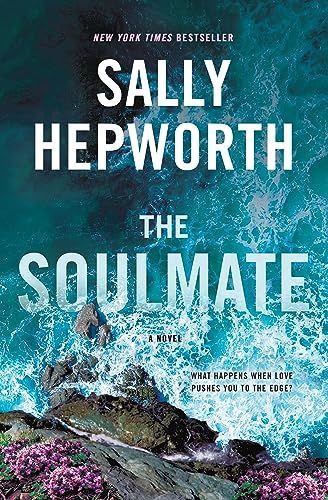
The Soulmate A Novel
Prepare yourself for a thrilling, addictive novel about marriage, betrayal, and the secrets that push us to the edge in this latest book from the bestselling author of The Good Sister and The Younger Wife.
Picture a lovely cottage on a cliff, with sloping lawns, walking paths, and beautiful flowers. It’s Gabe and Pippa Gerard’s dream home in a sleepy coastal town. But their perfect house hides something sinister. The tall cliffs have become a popular spot for people to end their lives. Over the past several months, Gabe comes to their rescue, literally talking them off the ledge.
Until one day, he doesn’t. When Pippa discovers Gabe knew the victim, the questions spiral. . . .Did the victim jump? Was she pushed? And would Gabe, the love of Pippa’s life, her soulmate . . . lie? As the perfect façade of their marriage begins to crack, the deepest and darkest secrets begin to unravel. Because sometimes, the most convincing lies are the ones we tell ourselves.
Reviews
Erin Goss@erinmg22
Katie B.@thismermaidreads
Amanda Autumn Berrey@booksofautumn
Cheri McElroy@cherimac
Quinnie@ghostkingsss
Kate Baldwin@itskatebaldwin
Ashley Lock@ashley919
Worth@worthw
Jessica Clem@itsmeejessc
Cynthia@shelfnarrative
Rebecka S.@hoppeduponbooks
Somya Verma@somyaverma
Payten Bovat@paytenbovat
Julia Kane@julkane
Alexandra Walsh@alex-hamas
Michelle Miller@bookishwifey
Kathleen Powers@katpowers
Bella Brain@bellabrain
Skye Lynn Boughton@skyeasaurusrex
Allison Garber@allygarbs